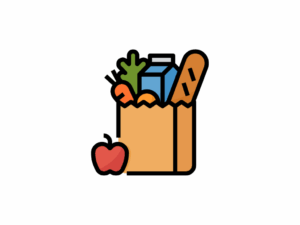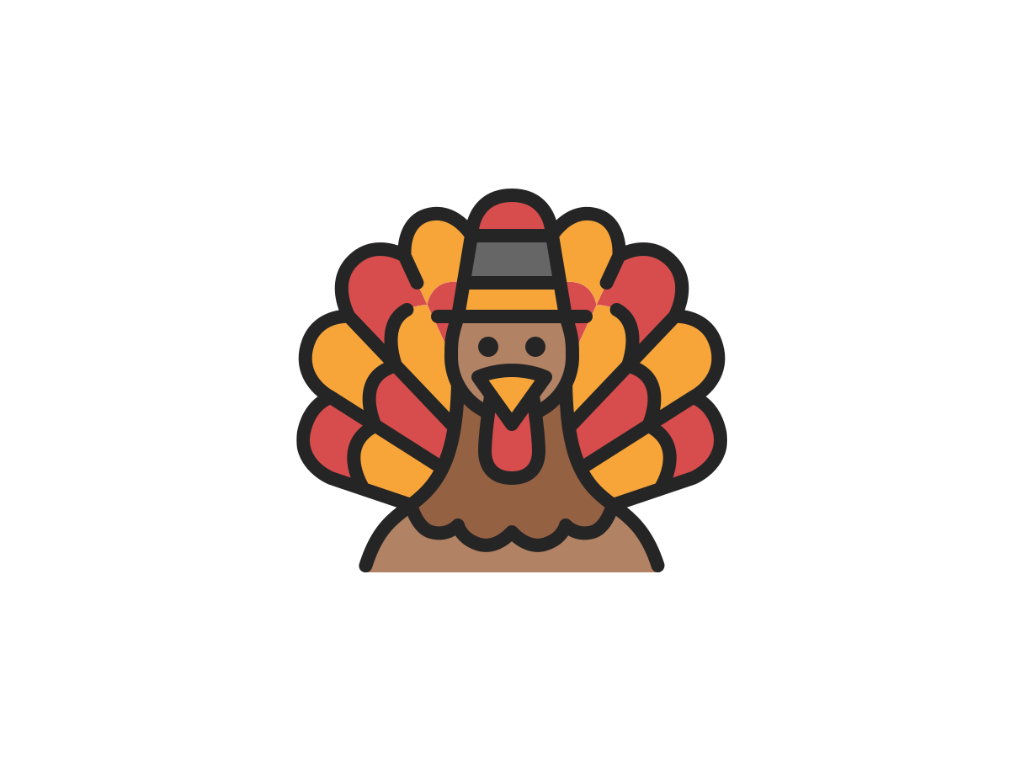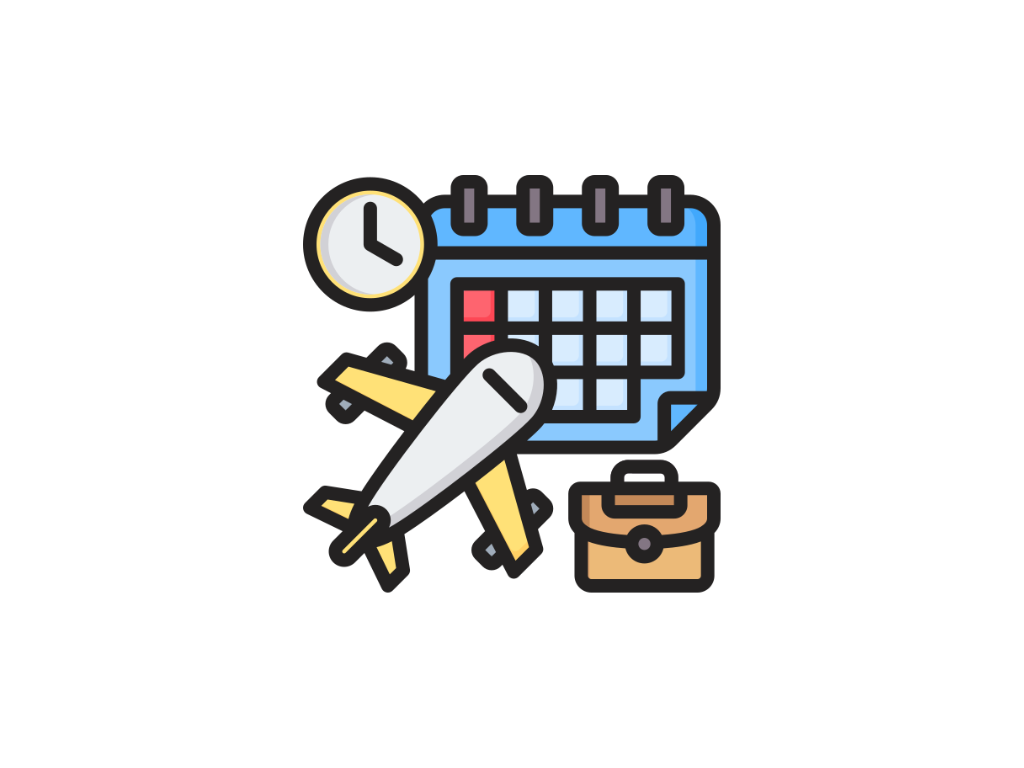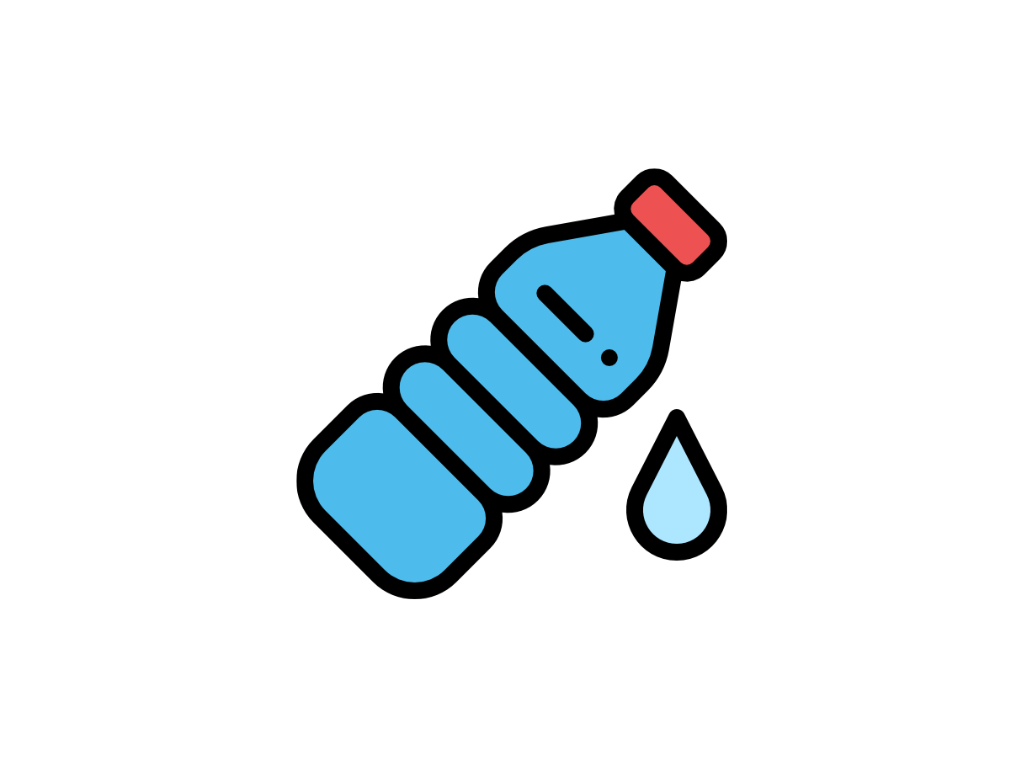From Overwhelmed to Organized: Why Grocery Planning Feels So Hard Right Now
Grocery prices have soared, and families are feeling the pinch. Between inflation, fluctuating supply chains, and packed schedules, even a “quick” store run turns into a $200 ordeal. Most parents aren’t failing to budget; they’re overwhelmed by fragmented systems that don’t talk to each other: recipes in one app, lists in another, and no clear plan linking them all together.
That’s where Ollie steps in. As The Washington Post noted in its feature on AI tools easing family life, Ollie helps households cut through chaos by automatically connecting meal plans, grocery lists, and budgets, so every item in your cart serves a purpose.
Why Are Grocery Bills Higher Than Ever (and What Families Can Do)
Grocery bills are higher because of inflation, supply-chain volatility, and unplanned shopping habits. You can cut costs by planning weekly meals, avoiding impulse buys, and reusing ingredients.
According to Parents.com, grocery prices are expected to rise another 3 percent this year, yet 60 percent of families report shopping more often due to last-minute dinner decisions. That’s the real culprit: spontaneity equals overspending.
Ollie helps you get ahead of that cycle by auto-planning meals and generating an organized grocery list grouped by store category. By shopping once, cooking twice, and reusing ingredients across meals, families save both time and money.
How AI-Powered Meal Planning Actually Reduces Spending
AI meal planning saves money by analyzing what you already have, generating efficient meal plans, and eliminating waste through reuse and better portioning.
Traditional meal planning is time-intensive, even with recipe apps; you still have to do the connecting. According to ScienceDirect research, families that plan meals in advance cut food waste by up to 30%. But consistency is the hard part.
Ollie’s AI learns your cooking habits, preferred ingredients, and schedule, then tailors meals that fit your week, not the other way around. It keeps track of what’s in your fridge and automatically adjusts your grocery list so you only buy what you’ll use.
Real Savings Start With Reuse
Batch cooking and ingredient reuse are key to cutting costs, not cutting quality. Buying a family pack of chicken thighs for one dinner might feel cheaper, but the real win is stretching it into tacos, wraps, or soups later in the week.
Tell Ollie that you want to batch cook this week to save money. Ollie will plan meals that reuse ingredients that save money on ingredients for the week, high quality meals that fit within your budget.
Plan With What’s Already in Your Pantry
Start every week by taking inventory. Use what you already have before shopping for more.
We all have half-used ingredients that end up expiring. That’s money literally going to waste. The USDA’s Food Waste Index estimates the average U.S. household throws out $1,600 in groceries annually, much of it from poor planning.
Ollie’s “fridge scan” feature makes pantry planning automatic. Snap a quick photo, and it identifies what’s there and suggests meals around it. That means your grocery list starts with what you already own, not what marketing convinces you to buy.
Smarter Grocery Lists = Smarter Budgets
A well-organized grocery list keeps you focused, prevents impulse spending, and ensures every item you buy has a place in your week’s meals.
Most families don’t overspend because they’re careless; they overspend because they shop reactively. You walk into the store with half a plan, grab what looks useful, and realize later that you forgot ingredients for Tuesday’s dinner. Those small detours add up fast.
According to the Cleveland Clinic’s guide on smart grocery shopping, the key to saving money is simple: plan ahead and stick to your list. Their nutrition experts explain that walking in with a list not only keeps your cart healthier, it also prevents unnecessary items from creeping in, especially when you’re hungry or distracted.
That advice lines up with behavioral research: a 2023 study from the Journal of Consumer Affairs found that shoppers who used organized lists spent up to 23% less per trip and reported less food waste overall. Even one unplanned purchase per trip can add over $500 annually to your household grocery bill, according to USDA consumer data. (USDA FoodAPS Report)
Ollie automates that discipline for you. Every week, once your meals are planned, Ollie builds a categorized grocery list sorted by produce, pantry, dairy, and household essentials. It syncs seamlessly with Instacart, Target, and Amazon Fresh for direct delivery or quick pickup, but you can also use it in-store like a checklist.
If you make a last-minute change, say swapping pasta night for tacos, your list updates automatically. The result? A tighter budget, fewer forgotten items, and a calmer, more intentional grocery routine.
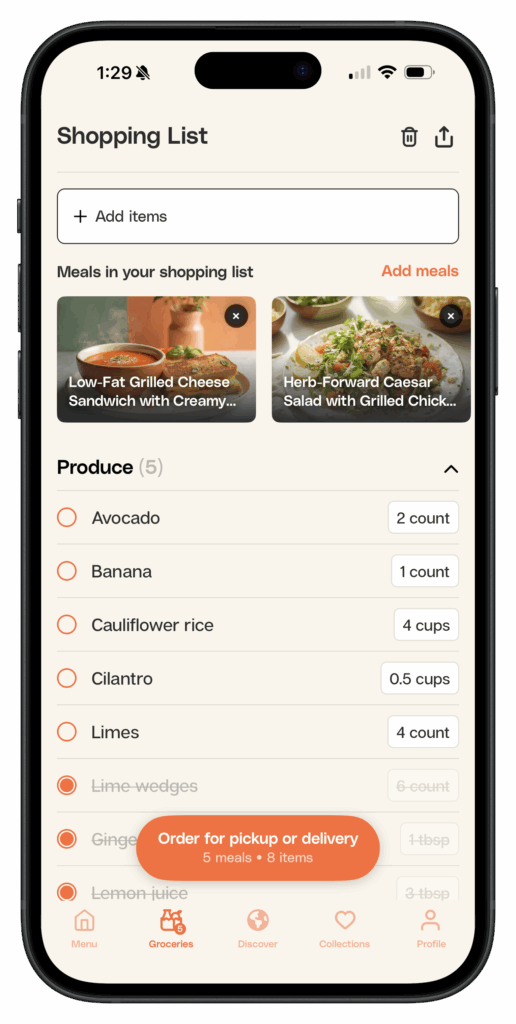
The Hidden Costs of Food Waste (and How AI Helps Prevent It)
Wasted food isn’t just a budgeting issue; it’s an environmental one. Each uneaten meal represents wasted labor, water, and energy. The Natural Resources Defense Council estimates 30-40% of U.S. food goes uneaten every year.
Ollie minimizes waste in two ways:
- Ingredient tracking: Meals are built around what you already have.
- Smart scaling: Recipes are portioned to your household size — no oversized batches that spoil mid-week.
By connecting meal planning to environmental awareness, Ollie makes sustainability practical for busy parents, not another guilt trip.
Success Story: How One Family Cut Their Grocery Bill by 25%
The Taylor family from San Diego started using Ollie after realizing they were spending nearly $300 a week on groceries — much of it on unused ingredients. After three weeks, they reported:
- 25% savings on groceries
- 40% less food waste
- More consistent, balanced dinners
Their biggest win? “Dinner time feels easy again. We’re eating better and spending less — without thinking about it.”
Closing Thoughts: Build a Smarter Routine That Pays You Back
Meal planning shouldn’t drain your wallet or your energy. With the right system, it becomes a rhythm, a predictable, sustainable part of family life.
Ollie connects the dots between what you eat, what you spend, and what you already have. It’s not about doing more, it’s about automating what drains you most.
Let Ollie handle the planning, the grocery list, and the mental load — so you can focus on the good part: dinner together.
